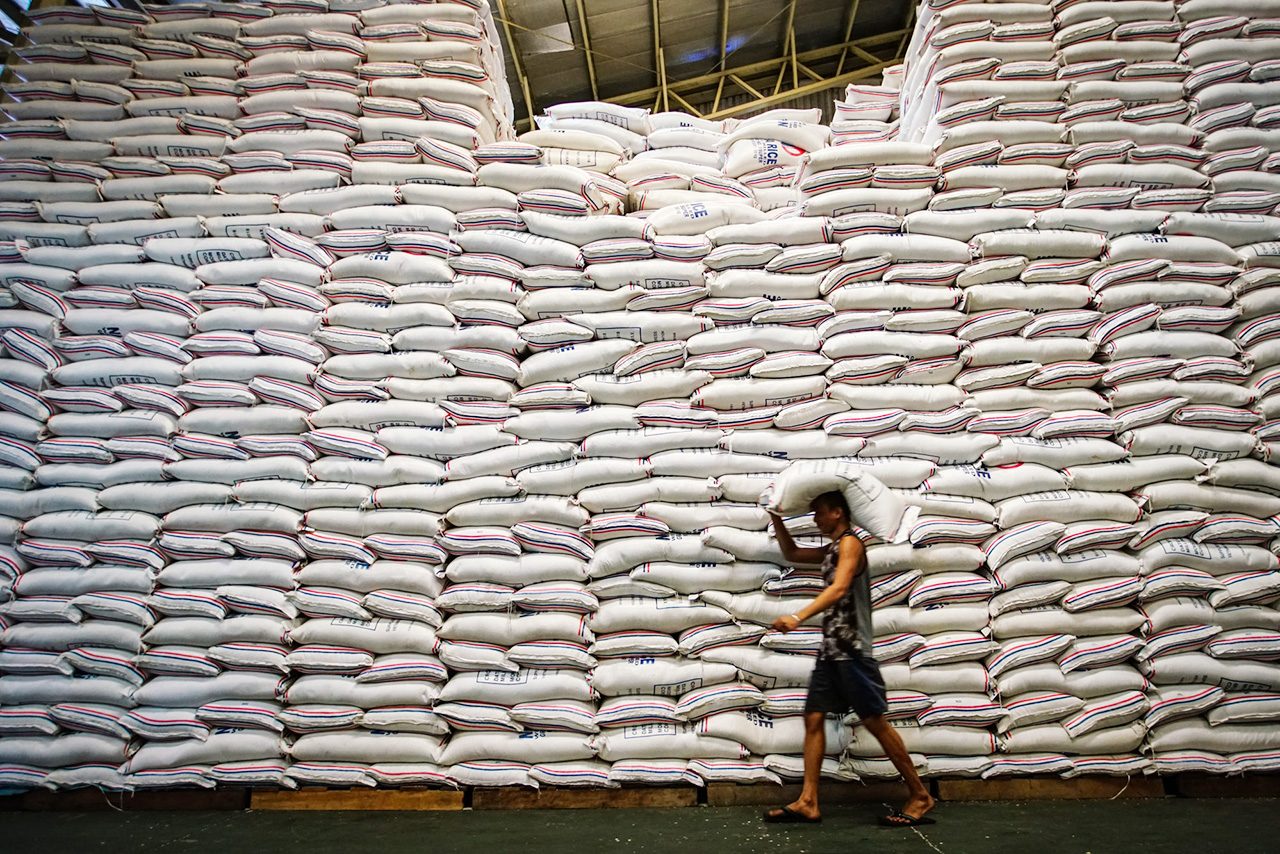SUMMARY
This is AI generated summarization, which may have errors. For context, always refer to the full article.

MANILA, Philippines – Amid the influx of allegedly undervalued rice imports, the Philippine Confederation of Grains Associations (PCGA) on Monday, July 29, called for stricter government regulations.
PCGA president Joji Co told reporters on the sidelines of the launch of the Masaganang Ani 300 program that aside from reviewing Republic Act (RA) No. 11203 or the rice tariffication law, the government should also tighten monitoring of imports.
“What they should do here is to enforce strictly the customs law on rice imports…. What is important is strict implementation of the customs law,” he said.
Co shrugged off the Department of Agriculture’s proposal to reimpose suggested retail prices on rice, as the oversupply of rice in the market already means prices should drop. However, Co noted that retail rice prices are still somewhat high.
RA No. 11203 author and sponsor Senator Cynthia Villar earlier said there is no need to review the 5-month-old law, but agreed that the Bureau of Customs (BOC) should prevent the undervaluation of rice imports.
The BOC, in a statement on Monday, denied that shipments of rice are undervalued.
“It is the office of the Import Assessment Service that provides reference values…as guides when the veracity of the declared values are disputable,” said the bureau.
“All ports abide with the said published data except when the commercial invoice of a rice shipment is supported by genuine and validated proof of payment…that [indicates the] actual sales transaction between the seller and the buyer.”
Effects on other industries
Due to the unimpeded importation of rice, local industry stakeholders also believe that other industries which rely on rice by-products may be negatively affected too.
Co said only around 60% to 70% of some 10,000 rice mills in the Philippines are operating, as some would prefer to just import rice.
“Milling is labor-intensive, but if you import, there’s no problem. The problem is you don’t have any darak (husk),” he added in a mix of English and Filipino.
Co said this will affect the livestock industry as darak is needed in animal feeds.
Rice industry stakeholders had warned back in February that the rice tariffication law would have a domino effect once implemented.
In a bid to increase local rice production, hybrid rice producer SL Agritech partnered with the government for the Masaganang Ani 300 program.
The program seeks to give incentives to rice farmers who can produce at least 300 cavans or 15,000 kilograms per hectare of rice. – Rappler.com
Add a comment
How does this make you feel?
There are no comments yet. Add your comment to start the conversation.